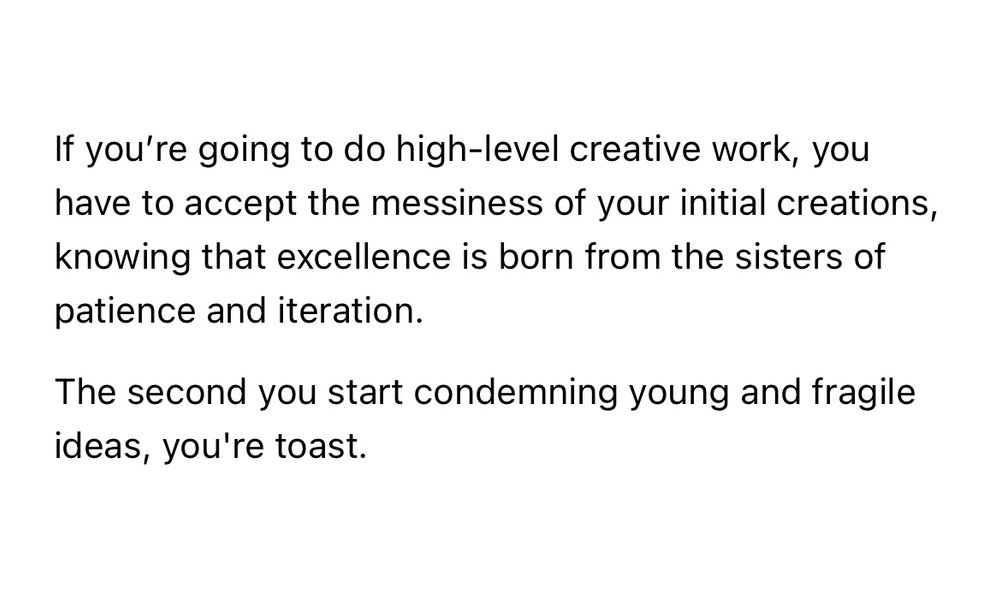the art of iteration
I love this: “Productivity can only move as a line through time. Creativity can fold time itself.” — @farbood
Anne-Laure Le Cunffx.com
Creativity requires connecting the dots, and connecting the dots requires allowing time for my subconscious to consolidate my ideas and make associations. This means that, from time to time, I need to just stare out the window and do nothing.
This doesn’t feel productive, even though it is.
This doesn’t feel productive, even though it is.
Ozan Varol • You’re doing better than you think. Here’s why. - Ozan Varol
It's important to do things fast: You learn more per unit time because you make contact with reality more frequently. Going fast makes you focus on what's important; there's no time for bullshit.
Nat Friedman • Nat Friedman
the idea that creativity is combinatorial, that nothing is entirely original, that everything builds on what came before, and that we create by taking existing pieces of inspiration, knowledge, skill and insight that we gather over the course of our lives and recombining them into incredible new creations.
Maria Popova • Networked Knowledge and Combinatorial Creativity
Synthesis as art:
Howard Gardner • A Look Inside “A Synthesizing Mind” by Howard Gardner (Book Summary)
To me, challenging doesn’t look like the person who just grinds through a project to get it done, sacrificing sleep, family, or any semblance of balance. While brute force may be effective short -term, I’m convinced it doesn’t lend itself to sustainable creativity, joy, or meaning (and sustainability is everything – from a biological and... See more
Unknown • Challenging * Mattering = Meaningful
George Leonard on how mastery is nothing but a series of plateaus with brief spurts of progress:
“The most important lessons here — especially for young people — is that even if you’re shooting for the stars, you’re going to spend most of your time on a plateau. That’s where the deepest, most lasting learning takes place, so you might as well enjoy... See more
“The most important lessons here — especially for young people — is that even if you’re shooting for the stars, you’re going to spend most of your time on a plateau. That’s where the deepest, most lasting learning takes place, so you might as well enjoy... See more
Brain Food: A Series of Plateaus
Creativity is scarce because of censorship. Not in the usual sense of that word—the cops closing down a strip show, or some government official collecting and burning politically offensive books—but rather in the sense of “discouragement,” of telling those who have creative ideas that the ideas aren’t really interesting, that they aren’t sensible,... See more